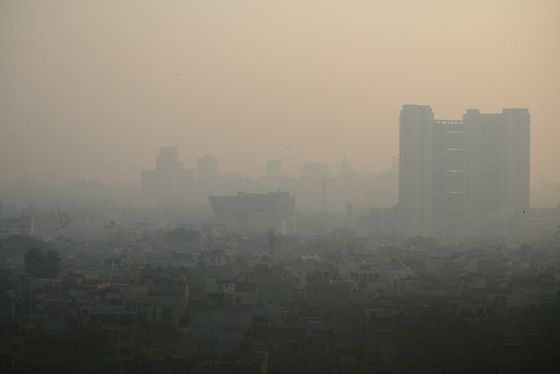Research results that urban life is full of substances that cause depression

by
Recent studies have shown that children grown in low green areas are at high risk for mental illness, but research results have been published to support this. According to a report published in the science information media Annual Reviews , it is gradually becoming clear that various environmental factors such as air pollution and noise, which are said to be frequent in urban areas, will become mental health risks. .
Mental disorders in urban areas: an ecological study of schizophrenia and other psychoses.-PsycNET
https://psycnet.apa.org/record/1939-01453-000
City life damages mental health in ways we're just starting to understand | Popular Science
https://www.popsci.com/physical-surroundings-cities-mental-illness
The research on the relationship between environment and mental illness was presented by Associate Professor Matilda van den Bosch of the University of British Columbia and Andreas Meyer Lindenberg, director of the Central Institute for Mental Health in Germany. Van den Bosch and others have reviewed nearly 150 documents that have reported the impact of the environment on the human body, and have summarized the environmental factors that can cause mental illness.
◆ Noise
Noise is the most obvious risk of mental illness. Numerous studies have shown that noise stress can be a cause of mental illness such as depression, and a strong causal relationship between noise and mental illness is observed. Although noise can be said to have a single bite, there are various causes, but people who are living for a long time exposed to noise from aircrafts, railways, cars etc. are diagnosed with depression or who have antidepressants from doctors Because there are many studies that have been prescribed and / or prescribed, living in urban areas, which can not be separated from automobiles and transportation, seems to have a corresponding risk of mental illness.

by
◆ Air pollution
It is already well known that air pollution causes respiratory and mucosal disease, but it has been suggested that it also affects the brain. Specifically, children and adolescents living in areas where air pollution is severe tend to have low cognitive function and memory. Although the mechanism is not completely clear, air pollutants cause an increase in inflammatory cytokines in the body and damage to neurons, resulting in oxidative stress in the prefrontal cortex and striatum It is seen that it is likely to do.

by
◆ Pollen
Pollen is generally known as the causative agent of allergic rhinitis, called hay fever, and is a substance that causes headaches for people with hay fever, not only in urban areas, but also causes mental illness. is. Specifically, it has been reported that research results have shown that immunoglobulin E (IgE) in response to pollen increases inflammatory cytokines and may be a risk of depression. However, researchers say that the number of findings on the relationship between pollen and mental illness is so small that no definitive conclusion can be drawn. Mariahthi-Anna Kioumourtzoglou, who is studying environmental health sciences at Columbia University in Miami, told an interview from the science-based media Popular Science that, 'Allergic reactions caused by pollen become a stress factor as well as noise etc. It is answered that 'is it a cause of mental illness?'

by Rido81
About 55% of all human beings live in urban areas as of 2019, but the population of urban areas is expected to reach nearly 70% by 2050, and many people living around the world are Life in and around the city and its suburbs is becoming inevitable. 'We can not change the city into a lush green utopia by now,' Kioumourtzoglou said, 'It is possible to pay attention to the environmental impact of people when formulating new city plans and environmental protection regulations.' Emphasized the importance of creating an environment that was
Related Posts:
in Note, Posted by log1l_ks







